General debate of the sixty-sixth session of the United Nations General Assembly
| General debate of the sixty-sixth session of the United Nations General Assembly | |
|---|---|
| Host country | United Nations |
| Dates | 21 – 27 September 2011 |
| Venue(s) | United Nations Headquarters |
| Cities | New York City |
The general debate of the sixty-sixth session of the United Nations General Assembly speaking schedule in the General Assembly Chamber in September, 2011 were as follows:
Subjects
In addition to commenting on issues of individual national and wider international relevance, the speakers commented on the theme: "The role of mediation in the settlement of disputes by peaceful means." The theme is traditionally chosen by the President of the General Assembly, who proposes a theme of global relevant to the member states; in turn, the member states then approve of the matter and comment on it during the General Debate.[1]
21 September
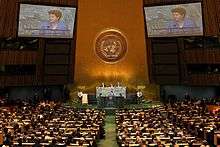
- Morning schedule
 – Secretary-General Ban Ki-moon
– Secretary-General Ban Ki-moon  66th Session of the United Nations General Assembly – President Nassir Abdulaziz Al-Nasser
66th Session of the United Nations General Assembly – President Nassir Abdulaziz Al-Nasser  Brazil – President Dilma Rousseff[nb 1]
Brazil – President Dilma Rousseff[nb 1]  United States – President Barack Obama
United States – President Barack Obama  Qatar – Emir Sheikh Hamad bin Khalifa Al-Thani
Qatar – Emir Sheikh Hamad bin Khalifa Al-Thani  Mexico – President Felipe Calderón Hinojosa
Mexico – President Felipe Calderón Hinojosa  Kazakhstan – President Nursultan Nazarbayev
Kazakhstan – President Nursultan Nazarbayev  France – President Nicolas Sarkozy
France – President Nicolas Sarkozy  Argentina – President Cristina Fernández de Kirchner
Argentina – President Cristina Fernández de Kirchner  Lebanon – President Michel Sleiman
Lebanon – President Michel Sleiman  Republic of Korea – President Lee Myung-bak
Republic of Korea – President Lee Myung-bak 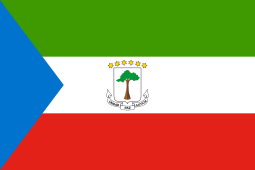 Equatorial Guinea – President Teodoro Obiang Nguema Mbasogo
Equatorial Guinea – President Teodoro Obiang Nguema Mbasogo  Jordan – King King Abdullah II Bin Al Hussein
Jordan – King King Abdullah II Bin Al Hussein  Finland – President Tarja Halonen
Finland – President Tarja Halonen  Colombia – President Juan Manuel Santos Calderón
Colombia – President Juan Manuel Santos Calderón Nigeria – President Goodluck Ebele Jonathan
Nigeria – President Goodluck Ebele Jonathan  Estonia – President Toomas Hendrik Ilves
Estonia – President Toomas Hendrik Ilves  Switzerland – President Micheline Calmy-Rey
Switzerland – President Micheline Calmy-Rey
- Afternoon session
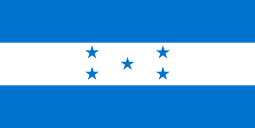 Honduras – President Porfirio Lobo Sosa
Honduras – President Porfirio Lobo Sosa  Ukraine – President Viktor Yanukovych
Ukraine – President Viktor Yanukovych 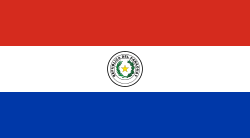 Paraguay – President Fernando Lugo Méndez
Paraguay – President Fernando Lugo Méndez 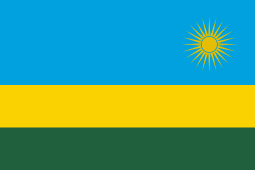 Rwanda – President Paul Kagame
Rwanda – President Paul Kagame  Bosnia and Herzegovina – Chairman of the Presidency Željko Komšić
Bosnia and Herzegovina – Chairman of the Presidency Željko Komšić 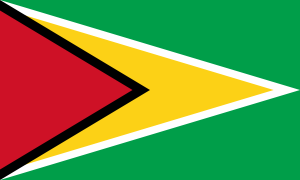 Guyana – President Bharrat Jagdeo
Guyana – President Bharrat Jagdeo 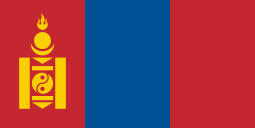 Mongolia – President Elbegdorj Tsakhia
Mongolia – President Elbegdorj Tsakhia  South Africa – President Jacob Zuma
South Africa – President Jacob Zuma  Latvia – President Andris Bērziņš
Latvia – President Andris Bērziņš 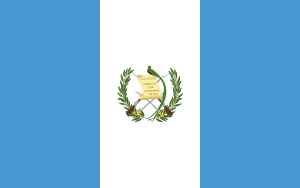 Guatemala – President Álvaro Colom Caballeros
Guatemala – President Álvaro Colom Caballeros 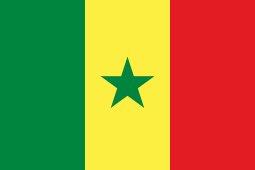 Senegal – President Abdoulaye Wade
Senegal – President Abdoulaye Wade 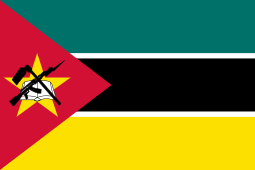 Mozambique – President Armando Emilio Guebuza
Mozambique – President Armando Emilio Guebuza 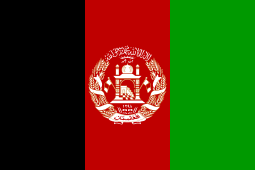 Afghanistan – President Hamid Karzai (scheduled)[nb 2]
Afghanistan – President Hamid Karzai (scheduled)[nb 2]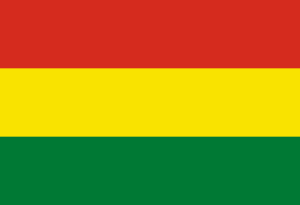 Bolivia – President Evo Morales Ayma
Bolivia – President Evo Morales Ayma  Slovenia – President Danilo Türk
Slovenia – President Danilo Türk 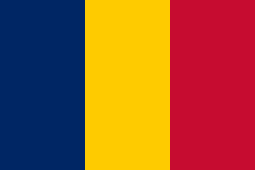 Chad – President Idriss Déby Itno (scheduled)
Chad – President Idriss Déby Itno (scheduled)
22 September
- Morning schedule
 Cyprus – President Demetris Christofias
Cyprus – President Demetris Christofias 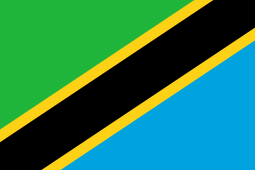 Tanzania – President Jakaya Mrisho Kikwete
Tanzania – President Jakaya Mrisho Kikwete 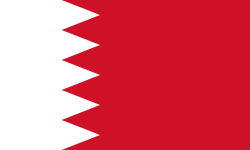 Bahrain – King Hamad bin Isa Al Khalifa
Bahrain – King Hamad bin Isa Al Khalifa 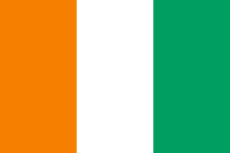 Côte d'Ivoire – President Alassane Ouattara
Côte d'Ivoire – President Alassane Ouattara  Chile – President Sebastián Piñera Echeñique
Chile – President Sebastián Piñera Echeñique  Iran – President Mahmoud Ahmadinejad
Iran – President Mahmoud Ahmadinejad 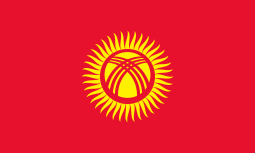 Kyrgyzstan – President Roza Otunbaeva
Kyrgyzstan – President Roza Otunbaeva 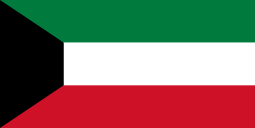 Kuwait – Prime Minister Sheikh Nasser Mohammed Al-Ahmed Al-Sabah
Kuwait – Prime Minister Sheikh Nasser Mohammed Al-Ahmed Al-Sabah  United Kingdom – Prime Minister David Cameron
United Kingdom – Prime Minister David Cameron  European Union – President of the European Council Herman Van Rompuy[nb 3]
European Union – President of the European Council Herman Van Rompuy[nb 3]  Turkey – Prime Minister Recep Tayyip Erdoğan
Turkey – Prime Minister Recep Tayyip Erdoğan
- Afternoon session
 Poland = President Bronislaw Komorowski
Poland = President Bronislaw Komorowski  Kenya – President Mwai Kibaki
Kenya – President Mwai Kibaki  Georgia – President Mikheil Saakashvili
Georgia – President Mikheil Saakashvili  Dominican Republic – President Leonel Fernández Reyna
Dominican Republic – President Leonel Fernández Reyna  Peru – President Ollanta Humala Tasso
Peru – President Ollanta Humala Tasso  Lithuania – President Dalia Grybauskaitė
Lithuania – President Dalia Grybauskaitė 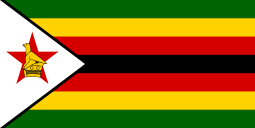 Zimbabwe – President Robert Mugabe
Zimbabwe – President Robert Mugabe 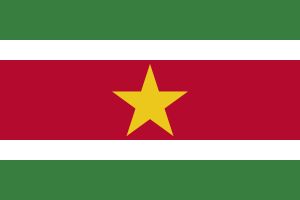 Suriname – President Desiré Delano Bouterse
Suriname – President Desiré Delano Bouterse 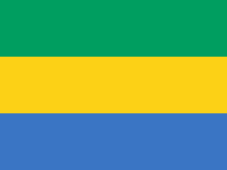 Gabon – President Ali Bongo Ondimba
Gabon – President Ali Bongo Ondimba 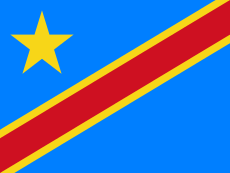 Democratic Republic of Congo – President Joseph Kabila Kabange
Democratic Republic of Congo – President Joseph Kabila Kabange 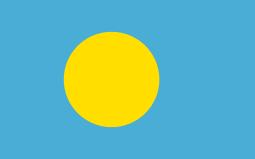 Palau – President Johnson Toribiong
Palau – President Johnson Toribiong 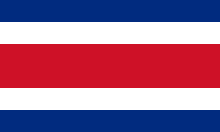 Costa Rica – President Laura Chinchilla Miranda (scheduled)
Costa Rica – President Laura Chinchilla Miranda (scheduled)  Croatia – President Ivo Josipović (scheduled)
Croatia – President Ivo Josipović (scheduled)  Chad – President Idriss Déby Itno
Chad – President Idriss Déby Itno  Croatia – President Ivo Josipović
Croatia – President Ivo Josipović Costa Rica – President Laura Chinchilla Miranda
Costa Rica – President Laura Chinchilla Miranda
- Report on the commemoration of the 10th anniversary of the Durban Review Conference – Prime Minister of Swaziland Barnabas Sibusiso Dlamini
- Special thanks to the permanent representatives of Monaco and Cameroon.[4]
- Report on the commemoration of the 10th anniversary of the Durban Review Conference – Prime Minister of Swaziland Barnabas Sibusiso Dlamini
 Australia – Foreign Minister Kevin Rudd
Australia – Foreign Minister Kevin Rudd Afghanistan – Foreign Minister Zalmai Rassoul
Afghanistan – Foreign Minister Zalmai Rassoul
23 September
- Morning schedule
 Ghana – President John Evans Atta Mills
Ghana – President John Evans Atta Mills 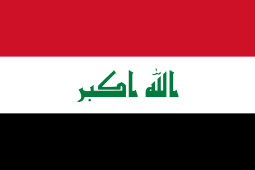 Iraq – President Jalal Talabani
Iraq – President Jalal Talabani  Czech Republic – President Václav Klaus
Czech Republic – President Václav Klaus 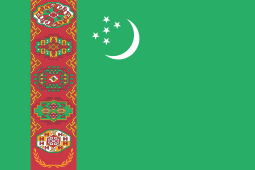 Turkmenistan – President Gurbanguly Berdimuhamedov
Turkmenistan – President Gurbanguly Berdimuhamedov 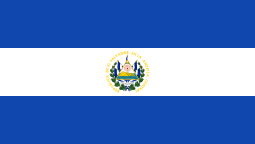 El Salvador – President Carlos Mauricio Funes Cartagena
El Salvador – President Carlos Mauricio Funes Cartagena  Sri Lanka – President Mahinda Rajapaksa
Sri Lanka – President Mahinda Rajapaksa 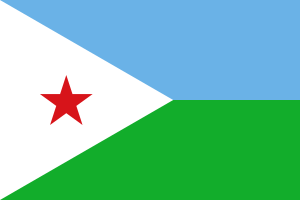 Djibouti – President Ismaël Omar Guelleh
Djibouti – President Ismaël Omar Guelleh 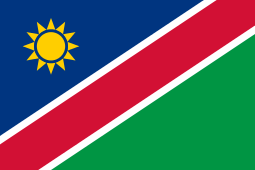 Namibia – President Hifikepunye Pohamba
Namibia – President Hifikepunye Pohamba 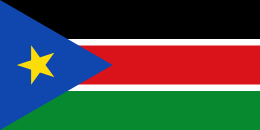 South Sudan – President Salva Kiir[nb 3]
South Sudan – President Salva Kiir[nb 3]  Armenia – President Serzh Sargsyan
Armenia – President Serzh Sargsyan 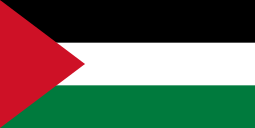 Palestine – Acting[nb 4] President Mahmoud Abbas[nb 5]
Palestine – Acting[nb 4] President Mahmoud Abbas[nb 5]  Japan – Prime Minister Yoshihiko Noda
Japan – Prime Minister Yoshihiko Noda 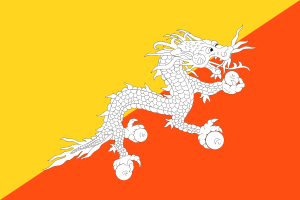 Bhutan – Prime Minister Lyonchen Jigmi Yoser Thinley
Bhutan – Prime Minister Lyonchen Jigmi Yoser Thinley  Israel – Prime Minister Benjamin Netanyahu
Israel – Prime Minister Benjamin Netanyahu  Sweden – Prime Minister Fredrik Reinfeldt
Sweden – Prime Minister Fredrik Reinfeldt
- Afternoon schedule
 Hungary – President Pál Schmitt
Hungary – President Pál Schmitt 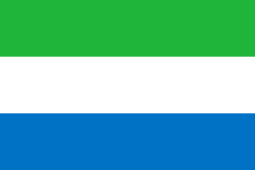 Sierra Leone – President Ernest Bai Koroma
Sierra Leone – President Ernest Bai Koroma  Serbia – President Boris Tadić
Serbia – President Boris Tadić 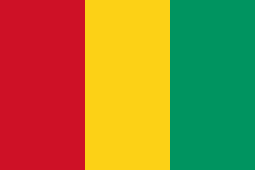 Guinea – President Alpha Condé
Guinea – President Alpha Condé 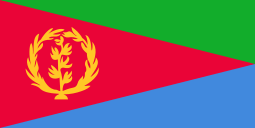 Eritrea – President Isaias Afwerki
Eritrea – President Isaias Afwerki 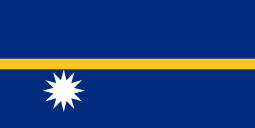 Nauru – President Marcus Stephen
Nauru – President Marcus Stephen 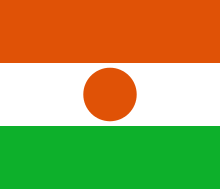 Niger – President Mahamadou Issoufou
Niger – President Mahamadou Issoufou 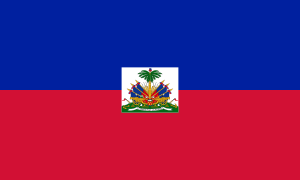 Haiti – President Michel Joseph Martelly
Haiti – President Michel Joseph Martelly 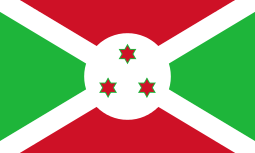 Burundi – President Pierre Nkurunziza
Burundi – President Pierre Nkurunziza 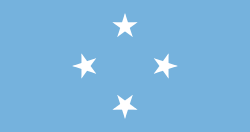 Micronesia – President Emanuel Mori
Micronesia – President Emanuel Mori 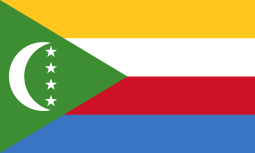 Comoros – President Ikililou Dhoinine
Comoros – President Ikililou Dhoinine 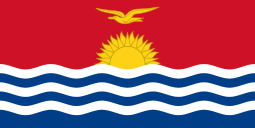 Kiribati – President Anote Tong
Kiribati – President Anote Tong 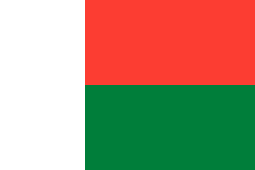 Madagascar – President Andry Nirina Rajoelina
Madagascar – President Andry Nirina Rajoelina  Portugal – Prime Minister Pedro Passos Coelho (scheduled)
Portugal – Prime Minister Pedro Passos Coelho (scheduled) 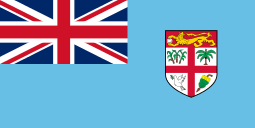 Fiji – Prime Minister Commodore Frank Bainimarama
Fiji – Prime Minister Commodore Frank Bainimarama 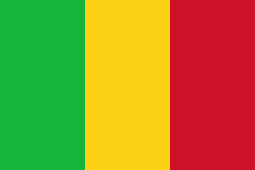 Mali – Prime Minister Cissé Mariam Kaïdama Sidibé
Mali – Prime Minister Cissé Mariam Kaïdama Sidibé 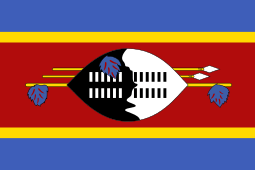 Swaziland – Prime Minister Barnabas Sibusiso Dlamini
Swaziland – Prime Minister Barnabas Sibusiso Dlamini 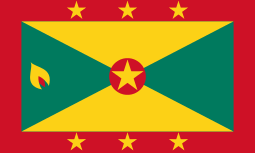 Grenada – Prime Minister Tillman Thomas
Grenada – Prime Minister Tillman Thomas 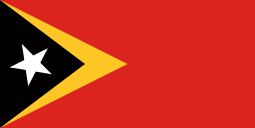 East Timor – President Kay Rala Xanana Gusmão
East Timor – President Kay Rala Xanana Gusmão Greece – Foreign Minister Stavros Lambrinidis
Greece – Foreign Minister Stavros Lambrinidis  Bulgaria – Foreign Minister Nickolay Mladenov
Bulgaria – Foreign Minister Nickolay Mladenov
24 September
- Morning schedule
 Lesotho – Prime Minister Pakalitha Bethuel Mosisili
Lesotho – Prime Minister Pakalitha Bethuel Mosisili  Montenegro – Prime Minister Igor Lukšić
Montenegro – Prime Minister Igor Lukšić  Slovakia – Prime Minister Iveta Radičová
Slovakia – Prime Minister Iveta Radičová  India – Prime Minister Manmohan Singh
India – Prime Minister Manmohan Singh 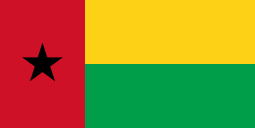 Guinea-Bissau – Prime Minister Carlos Gomes Júnior
Guinea-Bissau – Prime Minister Carlos Gomes Júnior 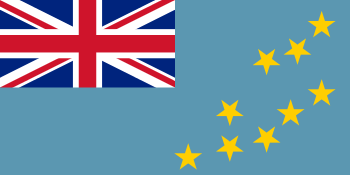 Tuvalu – Prime Minister Willy Telavi
Tuvalu – Prime Minister Willy Telavi 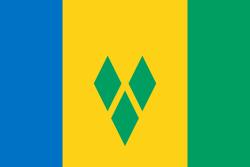 Saint Vincent and the Grenadines – Prime Minister Ralph Gonsalves
Saint Vincent and the Grenadines – Prime Minister Ralph Gonsalves 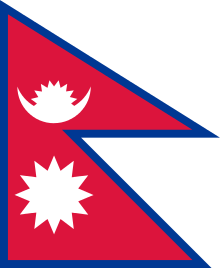 Nepal – Prime Minister Baburam Bhattarai
Nepal – Prime Minister Baburam Bhattarai 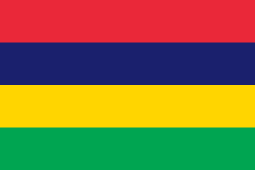 Mauritius – Prime Minister Navinchandra Ramgoolam
Mauritius – Prime Minister Navinchandra Ramgoolam 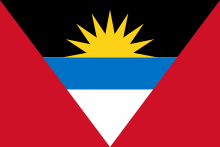 Antigua and Barbuda – Winston Baldwin Spencer
Antigua and Barbuda – Winston Baldwin Spencer  Albania – Prime Minister Sali Berisha
Albania – Prime Minister Sali Berisha 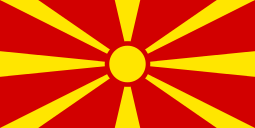 Macedonia – Prime Minister Nikola Gruevski
Macedonia – Prime Minister Nikola Gruevski  Bangladesh – Prime Minister Sheikh Hasina
Bangladesh – Prime Minister Sheikh Hasina 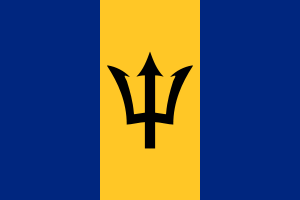 Barbados – Prime Minister Freundel Stuart
Barbados – Prime Minister Freundel Stuart  Malta – Prime Minister Lawrence Gonzi
Malta – Prime Minister Lawrence Gonzi  Egypt and the Non-Aligned Movement – Foreign Minister Mohamed Kemal Ali Amer
Egypt and the Non-Aligned Movement – Foreign Minister Mohamed Kemal Ali Amer Portugal – Prime Minister Pedro Passos Coelho
Portugal – Prime Minister Pedro Passos Coelho
- Afternoon schedule
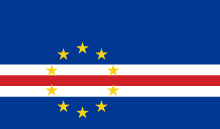 Cape Verde – Prime Minister José Maria Pereira Neves
Cape Verde – Prime Minister José Maria Pereira Neves 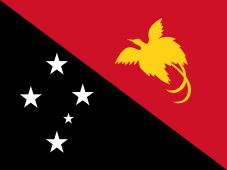 Papua New Guinea – Prime Minister Peter O’Neill
Papua New Guinea – Prime Minister Peter O’Neill 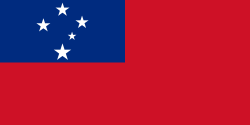 Samoa – Prime Minister Tuilaepa Sailele Malielegaoi
Samoa – Prime Minister Tuilaepa Sailele Malielegaoi 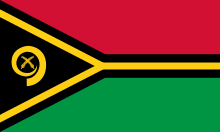 Vanuatu – Prime Minister Meltek Sato Kilman Livtunvanu
Vanuatu – Prime Minister Meltek Sato Kilman Livtunvanu 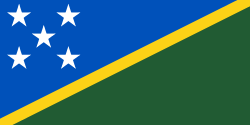 Solomon Islands – Prime Minister Danny Philip
Solomon Islands – Prime Minister Danny Philip 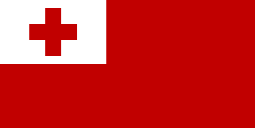 Tonga – Prime Minister Lord Tu’Ivakano of Nukunuku
Tonga – Prime Minister Lord Tu’Ivakano of Nukunuku 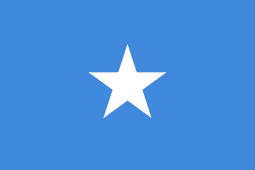 Somalia – Prime Minister Abdiweli Mohamed Ali
Somalia – Prime Minister Abdiweli Mohamed Ali 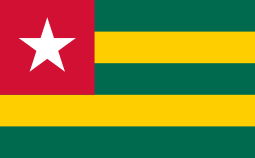 Togo – Prime Minister Gilbert Fossoun Houngbo
Togo – Prime Minister Gilbert Fossoun Houngbo  Austria – Vice Chancellor Michael Spindelegger
Austria – Vice Chancellor Michael Spindelegger Luxembourg – Foreign Minister Jean Asselborn
Luxembourg – Foreign Minister Jean Asselborn.svg.png) Belgium – Acting Deputy Prime Minister Steven Vanackere
Belgium – Acting Deputy Prime Minister Steven Vanackere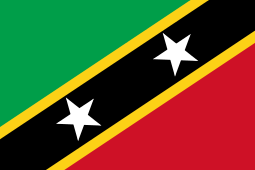 Saint Kitts and Nevis – Deputy Prime Minister Sam Terrence Condor
Saint Kitts and Nevis – Deputy Prime Minister Sam Terrence Condor Italy – Foreign Minister Franco Frattini
Italy – Foreign Minister Franco Frattini Spain – Foreign Minister Trinidad Jiménez
Spain – Foreign Minister Trinidad Jiménez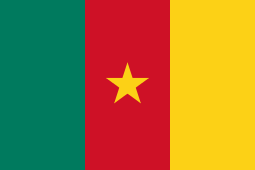 Cameroon – Foreign Minister Henri Eyebe Ayissi
Cameroon – Foreign Minister Henri Eyebe Ayissi
Right of Reply
Member states have the option to reply to comments on the day (or even to the days prior), but are limited to 10 minutes for the first response and five minutes for the second response.
On the day, Serbia used their Right of Reply in reaction to Albanian Prime Minister Sali Berisha's comments about Kosovo in saying that it has now become an annual ritual on their part and also cited counter claims that Kosovan towns that are ethnically mixed are not stable in communal harmony, contrary to Berisha's claims; Albania duly responded (though the presiding Vice President mistakenly called for Armenia instead, only to realise the delegation was absent and the Albanians asked for clarification). For the second response, Serbia said that it had said all it wanted to and wished not to further the debate; Albania then responded in agreement.[4]
26 September
- Morning schedule
 Syria – Foreign Minister Walid Muallem (scheduled)
Syria – Foreign Minister Walid Muallem (scheduled) Germany – Vice Chancellor Guido Westerwelle (scheduled)
Germany – Vice Chancellor Guido Westerwelle (scheduled)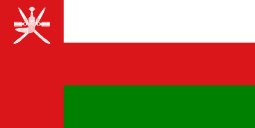 Oman – Foreign Minister Yousef Bin Al-Alawi Bin Abdulla (scheduled)
Oman – Foreign Minister Yousef Bin Al-Alawi Bin Abdulla (scheduled) Morocco – Foreign Minister Taïb Fassi Fihri (scheduled)
Morocco – Foreign Minister Taïb Fassi Fihri (scheduled) People's Republic of China – Foreign Minister Yang Jiechi (scheduled)
People's Republic of China – Foreign Minister Yang Jiechi (scheduled)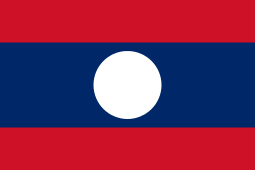 Laos – Deputy Prime Minister Thongloun Sisoulith (scheduled)
Laos – Deputy Prime Minister Thongloun Sisoulith (scheduled)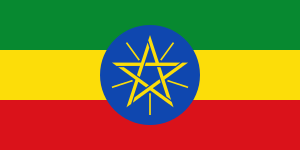 Ethiopia – Deputy Prime Minister Hailemariam Desalegn (scheduled)
Ethiopia – Deputy Prime Minister Hailemariam Desalegn (scheduled)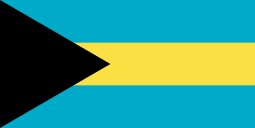 Bahamas – Deputy Prime Minister Brent Symonette (scheduled)
Bahamas – Deputy Prime Minister Brent Symonette (scheduled)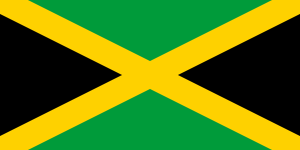 Jamaica – Deputy Prime Minister Kenneth Baugh (scheduled)
Jamaica – Deputy Prime Minister Kenneth Baugh (scheduled) Ireland – Deputy Prime Minister Eamon Gilmore (scheduled)
Ireland – Deputy Prime Minister Eamon Gilmore (scheduled)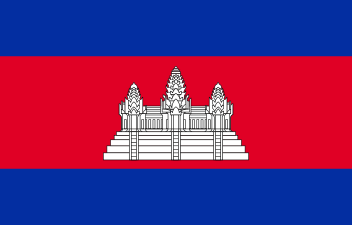 Cambodia – Foreign Minister Hor Namhong (scheduled)
Cambodia – Foreign Minister Hor Namhong (scheduled)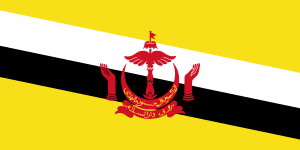 Brunei Darussalam – Crown Prince Haji Al-Muhtadee Billah (scheduled)
Brunei Darussalam – Crown Prince Haji Al-Muhtadee Billah (scheduled) 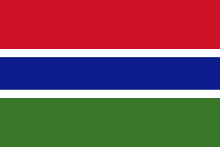 Gambia – Vice President Aja Isatou Njie-Saidy (scheduled)
Gambia – Vice President Aja Isatou Njie-Saidy (scheduled) Uganda – Vice President Edward Kiwanuka Ssekandi (scheduled)
Uganda – Vice President Edward Kiwanuka Ssekandi (scheduled)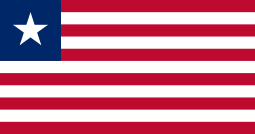 Liberia – Vice President Joseph Boakai (scheduled)
Liberia – Vice President Joseph Boakai (scheduled) Uruguay – Finance Minister Danilo Astori (scheduled)
Uruguay – Finance Minister Danilo Astori (scheduled)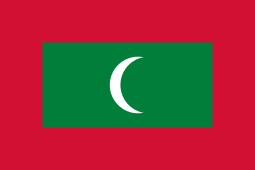 Maldives – Vice President Mohammed Waheed Hassan (scheduled)
Maldives – Vice President Mohammed Waheed Hassan (scheduled)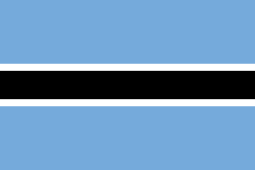 Botswana – Vice President Lieutenant General Mompati S. Merafhe
Botswana – Vice President Lieutenant General Mompati S. Merafhe  Maldives – Vice President Mohammed Waheed Hassan
Maldives – Vice President Mohammed Waheed Hassan  Liberia – Vice President Joseph Boakai
Liberia – Vice President Joseph Boakai Uruguay – Finance Minister Danilo Astori
Uruguay – Finance Minister Danilo Astori  Gambia – Vice President Aja Isatou Njie-Saidy
Gambia – Vice President Aja Isatou Njie-Saidy  Uganda – Vice President Edward Kiwanuka Ssekandi
Uganda – Vice President Edward Kiwanuka Ssekandi Brunei Darussalam – Crown Prince Haji Al-Muhtadee Billah
Brunei Darussalam – Crown Prince Haji Al-Muhtadee Billah Cambodia – Foreign Minister Hor Namhong
Cambodia – Foreign Minister Hor Namhong Ireland – Deputy Prime Minister Eamon Gilmore
Ireland – Deputy Prime Minister Eamon Gilmore Jamaica – Deputy Prime Minister Kenneth Baugh
Jamaica – Deputy Prime Minister Kenneth Baugh Bahamas – Deputy Prime Minister Brent Symonette
Bahamas – Deputy Prime Minister Brent Symonette Ethiopia – Deputy Prime Minister Hailemariam Desalegn
Ethiopia – Deputy Prime Minister Hailemariam Desalegn Laos – Deputy Prime Minister Thongloun Sisoulith
Laos – Deputy Prime Minister Thongloun Sisoulith People's Republic of China – Foreign Minister Yang Jiechi
People's Republic of China – Foreign Minister Yang Jiechi Morocco – Foreign Minister Taïb Fassi Fihri
Morocco – Foreign Minister Taïb Fassi Fihri Germany – Vice Chancellor Guido Westerwelle
Germany – Vice Chancellor Guido Westerwelle Oman – Foreign Minister Yousef Bin Al-Alawi Bin Abdulla
Oman – Foreign Minister Yousef Bin Al-Alawi Bin Abdulla Syria – Foreign Minister Walid Muallem
Syria – Foreign Minister Walid Muallem
- Afternoon schedule
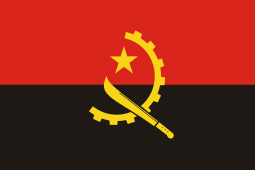 Angola – Foreign Minister Georges Rebelo Chikoti (scheduled)
Angola – Foreign Minister Georges Rebelo Chikoti (scheduled)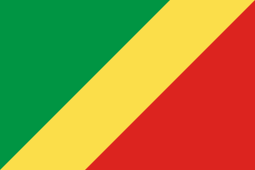 Congo – Foreign Minister Basile Ikouebe (scheduled)
Congo – Foreign Minister Basile Ikouebe (scheduled) Nicaragua – Foreign Minister Samuel Santos López (scheduled)
Nicaragua – Foreign Minister Samuel Santos López (scheduled)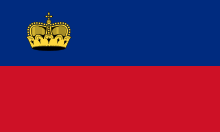 Liechtenstein – Foreign Minister Aurelia Frick (scheduled)
Liechtenstein – Foreign Minister Aurelia Frick (scheduled) Canada – Foreign Minister John Baird (scheduled)
Canada – Foreign Minister John Baird (scheduled) Indonesia – Foreign Minister Marty Natalegawa (scheduled)
Indonesia – Foreign Minister Marty Natalegawa (scheduled) Tunisia – Foreign Minister Mouldi Kefi (scheduled)
Tunisia – Foreign Minister Mouldi Kefi (scheduled)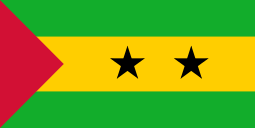 Sao Tome and Principe – Foreign Minister Manuel Salvador Dos Ramos (scheduled)
Sao Tome and Principe – Foreign Minister Manuel Salvador Dos Ramos (scheduled)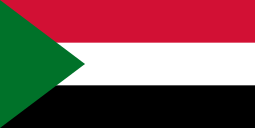 Sudan – Foreign Minister Ali Ahmed Karti (scheduled)
Sudan – Foreign Minister Ali Ahmed Karti (scheduled) Netherlands – Foreign Minister Uri Rosenthal (scheduled)
Netherlands – Foreign Minister Uri Rosenthal (scheduled) Iceland – Foreign Minister Össur Skarphéðinsson (scheduled)
Iceland – Foreign Minister Össur Skarphéðinsson (scheduled) Monaco – Foreign Minister José Badia (scheduled)
Monaco – Foreign Minister José Badia (scheduled)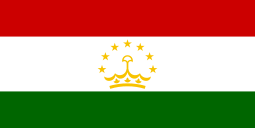 Tajikistan – Foreign Minister Hamrokhon Zarifi (scheduled)
Tajikistan – Foreign Minister Hamrokhon Zarifi (scheduled)  United Arab Emirates – Foreign Minister Sheikh Abdullah Bin Zayed Al Nahyan (scheduled)
United Arab Emirates – Foreign Minister Sheikh Abdullah Bin Zayed Al Nahyan (scheduled) Algeria – Foreign Minister Mourad Medelci (scheduled)
Algeria – Foreign Minister Mourad Medelci (scheduled) Cuba – Foreign Minister Bruno Rodríguez Parrilla (scheduled)
Cuba – Foreign Minister Bruno Rodríguez Parrilla (scheduled)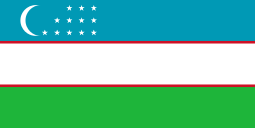 Uzbekistan – Foreign Minister Elyor Ganiyev
Uzbekistan – Foreign Minister Elyor Ganiyev Iceland – Foreign Minister Össur Skarphéðinsson
Iceland – Foreign Minister Össur Skarphéðinsson Algeria – Foreign Minister Mourad Medelci
Algeria – Foreign Minister Mourad Medelci United Arab Emirates – Foreign Minister Sheikh Abdullah Bin Zayed Al Nahyan
United Arab Emirates – Foreign Minister Sheikh Abdullah Bin Zayed Al Nahyan Tajikistan – Foreign Minister Hamrokhon Zarifi
Tajikistan – Foreign Minister Hamrokhon Zarifi Monaco – Foreign Minister José Badia
Monaco – Foreign Minister José Badia Cuba – Foreign Minister Bruno Rodríguez Parrilla
Cuba – Foreign Minister Bruno Rodríguez Parrilla Netherlands – Foreign Minister Uri Rosenthal
Netherlands – Foreign Minister Uri Rosenthal Sudan – Foreign Minister Ali Ahmed Karti
Sudan – Foreign Minister Ali Ahmed Karti Sao Tome and Principe – Foreign Minister Manuel Salvador dos Ramos
Sao Tome and Principe – Foreign Minister Manuel Salvador dos Ramos Tunisia – Foreign Minister Mouldi Kefi
Tunisia – Foreign Minister Mouldi Kefi Indonesia – Foreign Minister Marty Natalegawa
Indonesia – Foreign Minister Marty Natalegawa Canada – Foreign Minister John Baird
Canada – Foreign Minister John Baird Liechtenstein – Foreign Minister Aurelia Frick
Liechtenstein – Foreign Minister Aurelia Frick Nicaragua – Foreign Minister Samuel Santos López
Nicaragua – Foreign Minister Samuel Santos López Congo – Foreign Minister Basile Ikouebe
Congo – Foreign Minister Basile Ikouebe Angola – Foreign Minister Georges Rebelo Chikoti
Angola – Foreign Minister Georges Rebelo Chikoti Marshall Islands – Foreign Minister John M. Silk
Marshall Islands – Foreign Minister John M. Silk 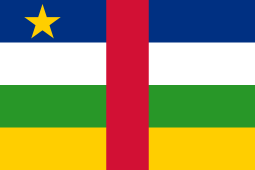 Central African Republic – Foreign Minister Antoine Gambi
Central African Republic – Foreign Minister Antoine Gambi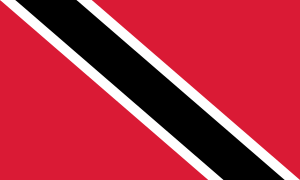 Trinidad and Tobago – Foreign Minister Surujrattan Rambachan
Trinidad and Tobago – Foreign Minister Surujrattan Rambachan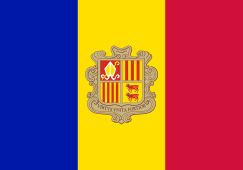 Andorra – Foreign Minister Gilbert Saboya Sunyé
Andorra – Foreign Minister Gilbert Saboya Sunyé Saudi Arabia – Foreign Minister Saud Al-Faisal (scheduled)
Saudi Arabia – Foreign Minister Saud Al-Faisal (scheduled)
Right of Reply
In response to the UAE's claims regarding three disputed islands, the representative of Iran stated that the islands were an eternal part of Iranian territory and under Iran's sovereignty. Regarding the name of the sea between Iran and the Arabian Peninsula, the representative of Iran said that the use of any name other than the Persian Gulf was illegitimate and void. Iran cited agreements in 1971 and said that it was willing to work bilaterally with officials of the UAE to ease "misunderstandings."[6]
Egypt responded to Canada's "utterly false allegations," in which Baird said "Copts [were] being assaulted and killed in Egypt." The Egyptian delegate countered this by citing that since the 2011 Egyptian revolution Copts and Muslims in Egypt stood together and that no church had been trespassed on since then. He also accused Canada of hypocrisy in claiming to stand above such notions.
The UAE then responded to Iran's reply, saying that Iran's allegations were "false" and "illegal," which are "annually repeated in this hall." The UAE said that they had documents to the contrary and that there was no other option but to return them to Emirati sovereignty. The delegate also accused Iran of changing the demographics of the islands.[4]
27 September
- Morning schedule
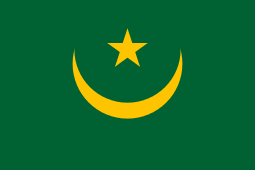 Mauritania – Foreign Minister Hamady Ould Hamady
Mauritania – Foreign Minister Hamady Ould Hamady 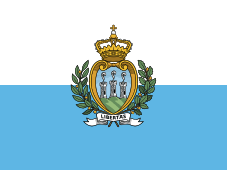 San Marino – Foreign Minister Antonella Mularoni
San Marino – Foreign Minister Antonella Mularoni  Singapore – Foreign Minister K. Shanmugam
Singapore – Foreign Minister K. Shanmugam  Belarus – Foreign Minister Sergei Martynov
Belarus – Foreign Minister Sergei Martynov 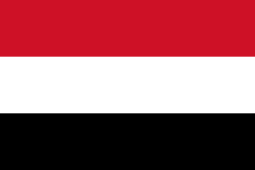 Yemen – Foreign Minister Abu Bakr al-Kurbi
Yemen – Foreign Minister Abu Bakr al-Kurbi  Russia – Foreign Minister Sergey Lavrov
Russia – Foreign Minister Sergey Lavrov 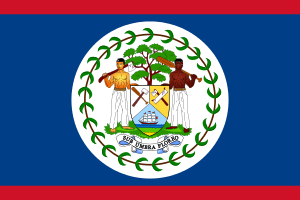 Belize – Foreign Minister Wilfred Elrington
Belize – Foreign Minister Wilfred Elrington 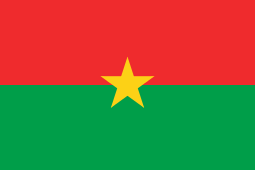 Burkina Faso – Foreign Minister Djibrill Ypènè Bassolé
Burkina Faso – Foreign Minister Djibrill Ypènè Bassolé  Myanmar – Foreign Minister Wunna Maung Lwin
Myanmar – Foreign Minister Wunna Maung Lwin  Viet Nam – Foreign Minister Phạm Bình Minh
Viet Nam – Foreign Minister Phạm Bình Minh  Azerbaijan – Foreign Minister Elmar Mammadyarov
Azerbaijan – Foreign Minister Elmar Mammadyarov  Malaysia – Foreign Minister Dato Sri Anifah Aman
Malaysia – Foreign Minister Dato Sri Anifah Aman 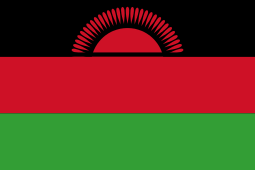 Malawi – Foreign Minister Arthur Peter Mutharika
Malawi – Foreign Minister Arthur Peter Mutharika  Thailand – Foreign Minister Surapong Tovichakchaikul
Thailand – Foreign Minister Surapong Tovichakchaikul 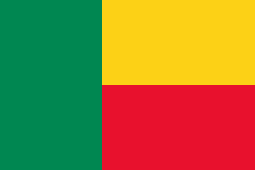 Benin – Foreign Minister Nassirou Bako Arifari
Benin – Foreign Minister Nassirou Bako Arifari 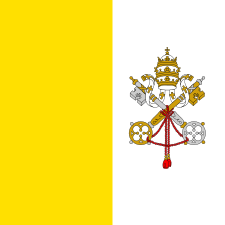 Holy See – Secretary for Relations with States Archbishop Dominique Mamberti
Holy See – Secretary for Relations with States Archbishop Dominique Mamberti
- Afternoon schedule
 Venezuela – Foreign Minister Nicolás Maduro Moros
Venezuela – Foreign Minister Nicolás Maduro Moros  Pakistan – Foreign Minister Hina Rabbani Khar
Pakistan – Foreign Minister Hina Rabbani Khar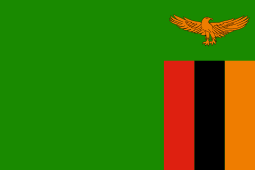 Zambia – Permanent Representative to the U.N. Lucy Mungoma (scheduled)
Zambia – Permanent Representative to the U.N. Lucy Mungoma (scheduled)  Democratic People's Republic of Korea – Deputy Foreign Minister Pak Kil Yon
Democratic People's Republic of Korea – Deputy Foreign Minister Pak Kil Yon  Romania – Deputy Foreign Minister Romulus Doru Costea
Romania – Deputy Foreign Minister Romulus Doru Costea  Panama – Deputy Foreign Minister Francisco Alvarez de Soto
Panama – Deputy Foreign Minister Francisco Alvarez de Soto  Norway – Deputy Foreign Minister Espen Barth Eide
Norway – Deputy Foreign Minister Espen Barth Eide Zambia – Permanent Representative to the U.N. Lucy Mungoma
Zambia – Permanent Representative to the U.N. Lucy Mungoma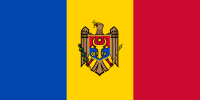 Republic of Moldova – Permanent Representative to the U.N. Alexandru Cujba
Republic of Moldova – Permanent Representative to the U.N. Alexandru Cujba  Ecuador – Permanent Representative to the U.N. Francisco Carrión-Mena
Ecuador – Permanent Representative to the U.N. Francisco Carrión-Mena  New Zealand – Permanent Representative to the U.N. Jim McLay
New Zealand – Permanent Representative to the U.N. Jim McLay 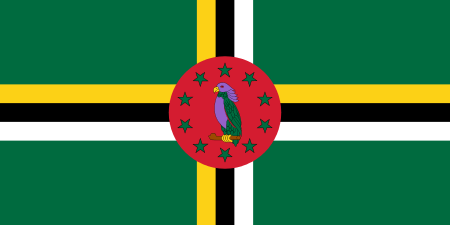 Dominica – Permanent Representative to the U.N. Vince Henderson (scheduled)
Dominica – Permanent Representative to the U.N. Vince Henderson (scheduled) New Zealand – Permanent Representative to the U.N. Jim McLay (scheduled)
New Zealand – Permanent Representative to the U.N. Jim McLay (scheduled)
- Final schedule
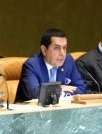
 Philippines – Permanent Representative to the U.N. Libran N. Cabactulan
Philippines – Permanent Representative to the U.N. Libran N. Cabactulan  Ecuador – Permanent Representative to the U.N. Francisco Carrión-Mena (scheduled)
Ecuador – Permanent Representative to the U.N. Francisco Carrión-Mena (scheduled)  Dominica – Permanent Representative to the U.N. Vince Henderson
Dominica – Permanent Representative to the U.N. Vince Henderson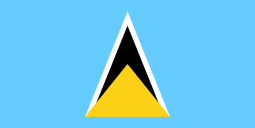 Saint Lucia – Permanent Representative to the U.N. Donatus Keith St. Aimee
Saint Lucia – Permanent Representative to the U.N. Donatus Keith St. Aimee  Denmark – Permanent Representative to the U.N. Carsten Staur
Denmark – Permanent Representative to the U.N. Carsten Staur  – 66th Session of the UNGA – President Nassir Abdulaziz Al-Nasser (closing remarks)
– 66th Session of the UNGA – President Nassir Abdulaziz Al-Nasser (closing remarks)
Right of Reply
Sri Lanka replied to Canada's comments about an initiative for dialogue between the two parties to its civil war at the UN Human Rights Council. Sri Lanka said that it was "deeply anguished" and accused Canada of "selective application" of principles.
Armenia responded to Azerbaijan's comments about Armenian aggression on their sovereignty saying that Azerbaijan's comments were "propaganda" akin to that of the Cold War. They cited other measures of negotiations such as that of the Organisation of Islamic Cooperation representative at the Minsk group that is attempting to resolve the Nagorno-Karabakh conflict. Armenia said that Azerbaijan is "preaching adherence to international law" while it "single-handedly misinterpreted" statements by Armenian President Serzh Sargsyan. They then accused Azerbaijan of having first used force against the "peaceful" expressions of Armenians in NKO and that the statement of the removal of Azeris from NKO and Armenia proper was not true "simply because they had never been there." They similarly accused Azerbaijan of fabricating the number of refugees as 1,000,000 because it does not exist on any international reports and that they are instead deluding their public. Armenia finally added that it was intent on resolving the dispute.
Azerbaijan then responded to Armenia's reply in saying that it was another "testament" to Armenia's "disregard of international law." It counter-accused Armenia of carrying out aggression and ethnic cleansing, as well as blaming them for a "racist ideology" yet criticising and lecturing Azerbaijan. It also reiterated claims of Armenia creating a "monoculture" with the alleged expulsions of Azeris from both Armenia proper and NKO and that there has been intensified attacks in the previous month and an "unprecedented" increase in hate rhetoric with Armenia's historical memory that could to destabilise the region. Azerbaijan finally added that its "territorial integrity" had to be respected; and that Armenia's "destructive agenda" would never be obliged, while Armenia must denounce its claims against its neighbours and act in a more civilised manner.[4]
Notes
- ↑ Rousseff became the first ever women to open the General Debate.[2]
- ↑ Karzai had to urgently return to Afghanistan following the assassination of Burhanuddin Rabbani. He left his foreign minister to speak on his behalf the following day.[3]
- 1 2 This was the first ever speech at the General Assembly's General Debate.
- ↑ The President of Palestine was under dispute between Fatah and Hamas at the time of the speech.
- ↑ Abbas told the chamber that he submitted Palestine's application for full membership to the UN Secretary-General amidst a standing ovation.[5]
References
- ↑ http://gadebate.un.org/
- ↑ http://gadebate.un.org/66/brazil
- ↑ http://gadebate.un.org/66/afghanistan
- 1 2 3 4 United Nations TV. 24–27 September 2011. 20:00 EST.
- ↑ "Palestinians set to submit UN bid – Middle East". Al Jazeera English. Retrieved 23 September 2011.
- ↑ "General Debate: 66th Session – Iran (Islamic Republic of)". 22 September 2011. Retrieved 30 December 2011.